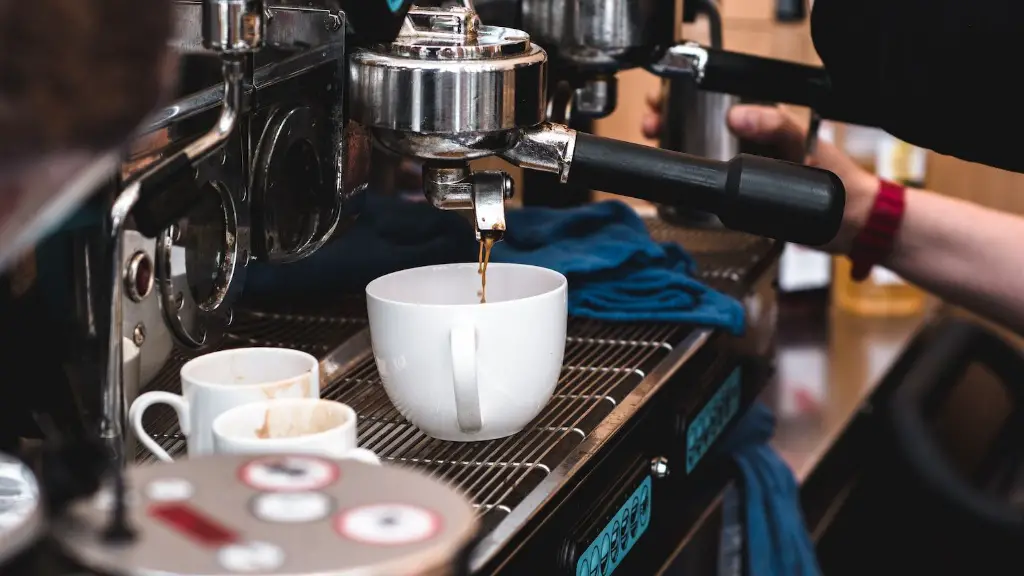Coffee has been a morning staple for generations and is still a major crutch of both productivity and lucidity for adults around the world. But the average person may not know just how much coffee they’re actually consuming. National surveys have shown that adults in America drink about 3.1 cups of coffee a day, with 64% of all adults of ages 18 and older reported to be regular coffee drinkers. This may seem like a lot of coffee when compared with only 24% of adults consuming the equivalent of one or two cups of coffee per day, and the remaining 12% consuming no coffee.
How the coffee is consumed can depend on several factors. Differences in demographics, such as age, gender, and location, play a role in what the consumer drinks. While coffee is still the go-to beverage of choice for adults, many younger people are replacing traditional drip coffee with coffee-based beverages, such as espresso drinks, lattes, and mochas – which can also lead to higher levels of caffeine intake.
Regardless of the form of coffee, there is a considerable amount of health benefits that come from drinking coffee. Medical research has linked drinking coffee to reducing the risk of mortality from heart disease and other chronic illnesses, as well as reducing the risk of developing certain medical conditions, such as Parkinson’s Disease, type-2 diabetes and colorectal cancer.
However, like any other food item, there can be too much of a good thing. And while coffee has plenty of health benefits, drinking too much can come with its own set of risks. Too much caffeine can cause an increased heart rate, increased blood pressure, restlessness, and make it difficult to sleep. So, it’s important to drink coffee in moderation.
So, the real question is: how much coffee should one consume in order to reap the rewards without going over the limit? According to experts, the recommended amount of coffee consumption is two or three 8-ounce cups per day. This is the amount to aim for on a daily basis – any more than that can put the individual at risk for adverse health effects.
In conclusion, there is no definite answer to how many cups of coffee the average person should be drinking daily. The amount of caffeine intake is based on a variety of factors, including age, gender, and body weight. It is best to consult with a health-care professional before taking on any new dietary habit.
Life span and Coffee consumption
When it comes to impact on life span, there may be a correlation between an increased lifespan and coffee consumption. Multiple studies have found a correlation between a longer life expectancy due to the antioxidants found in a hot cup of joe. Specifically, the American Journal of Clinical Nutrition concluded that the caffeine in coffee can reduce the risk of developing chronic disease-causing conditions, such as diabetes and certain kinds of cancer. In short, for those looking to live healthier, longer lives, coffee may be a viable option.
Coffee and Mental Health
The relationship between coffee and mental health is still being decoded. For example, one study from Harvard Health has reported that coffee can lower the risk of depression, while another study has noted that too much coffee can make anxiety worse. Additionally, many researchers have noted that drinking coffee can affect your sleep and lead to insomnia. Thus, it’s important to recognize the potential dangers of too much coffee – not just in terms of physical health, but mental health as well.
Decaf Coffee and its Benefits
Decaf coffee is often seen as an unhealthy alternative to regular coffee, but this is not necessarily true. Decaffeinated coffee can still provide the same amount of antioxidants, minerals, and nutrients as regular coffee. Of course, many of the health benefits that come from drinking coffee, such as the lowering of the risk for depression and other chronic illnesses, still require the caffeine that is found in regular coffee. But for those who are looking to cut their caffeine intake, decaf coffee still holds many of the benefits of its caffeinated sibling.
Coffee and Exercise
The science behind coffee and exercise is a delicate web – some research suggests that there are benefits to having caffeine before workout and others suggest that it can impede performance. Ultimately, the best way to figure out the right amount of coffee to consume before a workout is to experiment. For those who are not caffeine sensitive, a cup or two of coffee can provide an energy boost that can fuel high-intensity workouts. For those who may be more sensitive to caffeine, it’s best to consult with a medical professional before taking on a high-intensity workout.
Coffee and Productivity
Coffee has a long history of being used as a means to increase productivity, and for good reason. The combination of caffeine and antioxidants helps to improve mental dexterity, increase focus and concentration, and improve overall energy levels. But as mentioned before, it’s important to not overdo it – drinking too much coffee can lead to tiredness, jitteriness, and may even hinder productivity levels.
Conclusion
At the end of the day, the best way to determine how much coffee one should be drinking is to pay attention to the individual’s body and how it reacts. If coffee is making one too jittery or unable to sleep, then that may be a sign that it’s time to scale back. But for those looking to get the health benefits of coffee without consuming too much caffeine, decaf coffee may be the best option.



